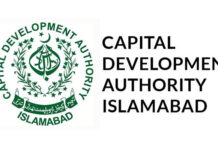The federal government has introduced sweeping restrictions on asset acquisitions and financial activity for individuals who fail to declare sufficient income, in a bid to tighten compliance and widen the tax base.
According to a press release issued Monday, non-compliant or under-declaring individuals will now be barred from purchasing high-value assets, including:
-
Cars priced above Rs7 million
-
Residential properties exceeding Rs50 million
-
Commercial plots valued over Rs100 million
The new rules, expected to be enforced via fiscal legislation in the ongoing budget cycle, will also limit certain financial operations. Individuals falling below the declared income thresholds will not be allowed to:
-
Maintain total annual bank balances exceeding Rs100 million
-
Invest more than Rs50 million annually in securities or capital markets
The measures reflect an aggressive policy push by the government to curb tax evasion and bring high net-worth individuals and asset holders into the formal tax regime. The restrictions appear to target wealthy individuals whose asset profiles and spending patterns suggest incomes far higher than reported in tax returns.
The Federal Board of Revenue (FBR) is expected to operationalise these rules through data-matching tools using NADRA, banking records, property transactions, and vehicle registration databases. Analysts believe that the move may also preemptively deter benami (proxy-owned) transactions in high-value real estate and automobile markets.
However, tax practitioners caution that implementation challenges remain, especially in verifying ownership structures and effectively identifying violators. The FBR’s enforcement capacity and ability to manage disputes could be tested once the policy kicks in.
This crackdown is part of a broader reform program aimed at improving tax-to-GDP ratio, meeting International Monetary Fund (IMF) conditionalities, and easing pressure on the fiscal deficit.
In recent months, the government has announced other steps including revised withholding regimes, point-of-sale (POS) integration, and restrictions on non-filers’ access to utility services and banking facilities.
The policy marks a continuation of Pakistan’s efforts to link tax compliance with lifestyle indicators, a strategy first attempted during earlier reform waves but often derailed by political resistance and weak enforcement.
Further clarity on enforcement timelines and penalties is expected once the Finance Bill 2025–26 is finalised.
























